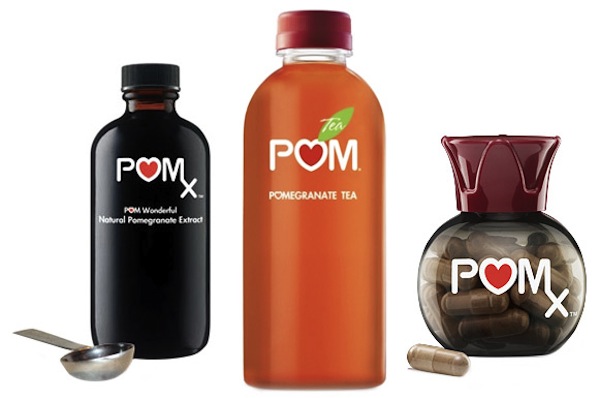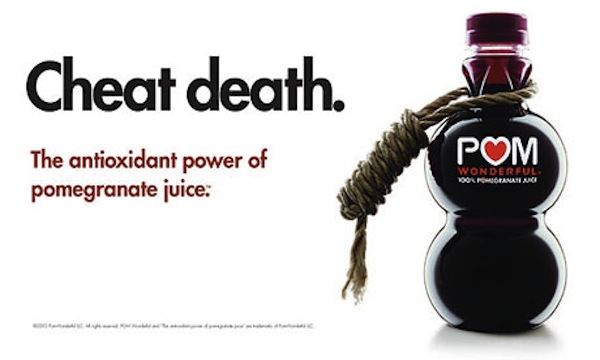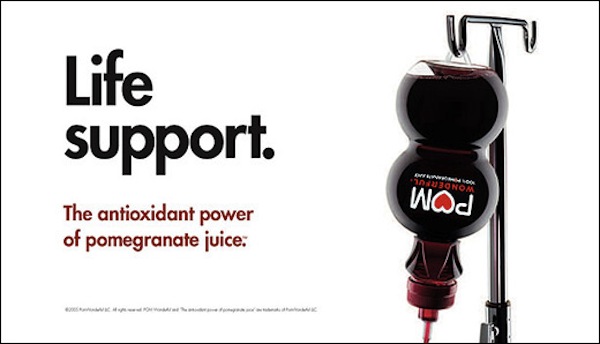These days, things for Pom Wonderful are anything but. Last week, federal regulators upheld a ruling that states the popular juice company has engaged in deceptive and misleading marketing practices. The Federal Trade Commission’s decision is the culmination of a multi-year action against the California-based pomegranate juice maker.
In September, 2025, the FTC accused POM of making false and unsubstantiated claims for 36 of their products, saying they could “treat, prevent, or reduce the risk of heart disease, prostate cancer and erectile dysfunction.” The commission said the company had a “lack of sufficiently reliable evidence” to back up those claims.
 The number of POM products the FTC is citing was bumped up to 36 from the 19 instances found by FTC Chief Administrative Law Judge D. Michael Chappell in May 2025.
The number of POM products the FTC is citing was bumped up to 36 from the 19 instances found by FTC Chief Administrative Law Judge D. Michael Chappell in May 2025.
While the FTC upheld the 2025 ruling by Judge Chappell, at least one aspect of his ruling that was somewhat lenient on POM (and by default, the entire food industry) was not. His ruling challenged the FTC’s position that disease claims about foods must always be supported by a minimum of two randomized controlled trials (RCTs).
Are regulators being heavy-handed, creating unrealistic expectations for the food industry? Constitutional and food business attorney Jonathan Emord thinks so. He told the daily online news service FoodNavigator-USA.com that “The problem created by the FTC’s new two RCT requirement is rendered particularly egregious because the FTC imposed it not only on establishment but also efficacy claims, not only disease treatment but also on any disease-related claim, and not only on express but also implied claims.” As a result, the “health marketplace will be dumbed down considerably to the detriment of health conscious consumers.”
Food industry attorney Mark Mansour expressed concern that the latest ruling will lead to additional litigation. He also feels the bar set on standards for food claims and drug claims is nearing the same level.
But there are two sides to every story.
In 2025, FTC attorney Heather Hippsley said studies used by POM often lack comparisons to control groups and don’t show statistically significant changes in medical conditions. Even more damning, she says company documents reveal POM executives were aware of their studies’ shortcomings, and “repeatedly ignored warning signs that the marketing didn’t match the science.”
The FTC Commissioner’s 54-page report stated that “an advertisement is deceptive if it contains a representation or omission of fact that is likely to mislead a consumer acting reasonably under the circumstances, and that representation or omission is material to a consumer’s purchasing decision.”
In a company statement POM wrote, “This order ignores what $35 million of peer-reviewed scientific research, centuries of traditional medicine and plain common sense have taught us: Antioxidant-rich pomegranate products are good for you.”
Stewart A. Resnick and Lynda Rae Resnick, the billionaire husband and wife who own POM Wonderful, LLC, also said that none of their ads claim to have clinical proof.
Are the POM ads misleading to the point of illegality? We may not be able to decide definitively, but take a look at a few for yourself:
Also Read:
VitaCoCO Gets Sued for False Advertising
Skechers Loses $40 Million Lawsuit over Shape-Ups Shoes
Life Size Barbie Shows Young Girls the Dangers of Unrealistic Body Expectations


